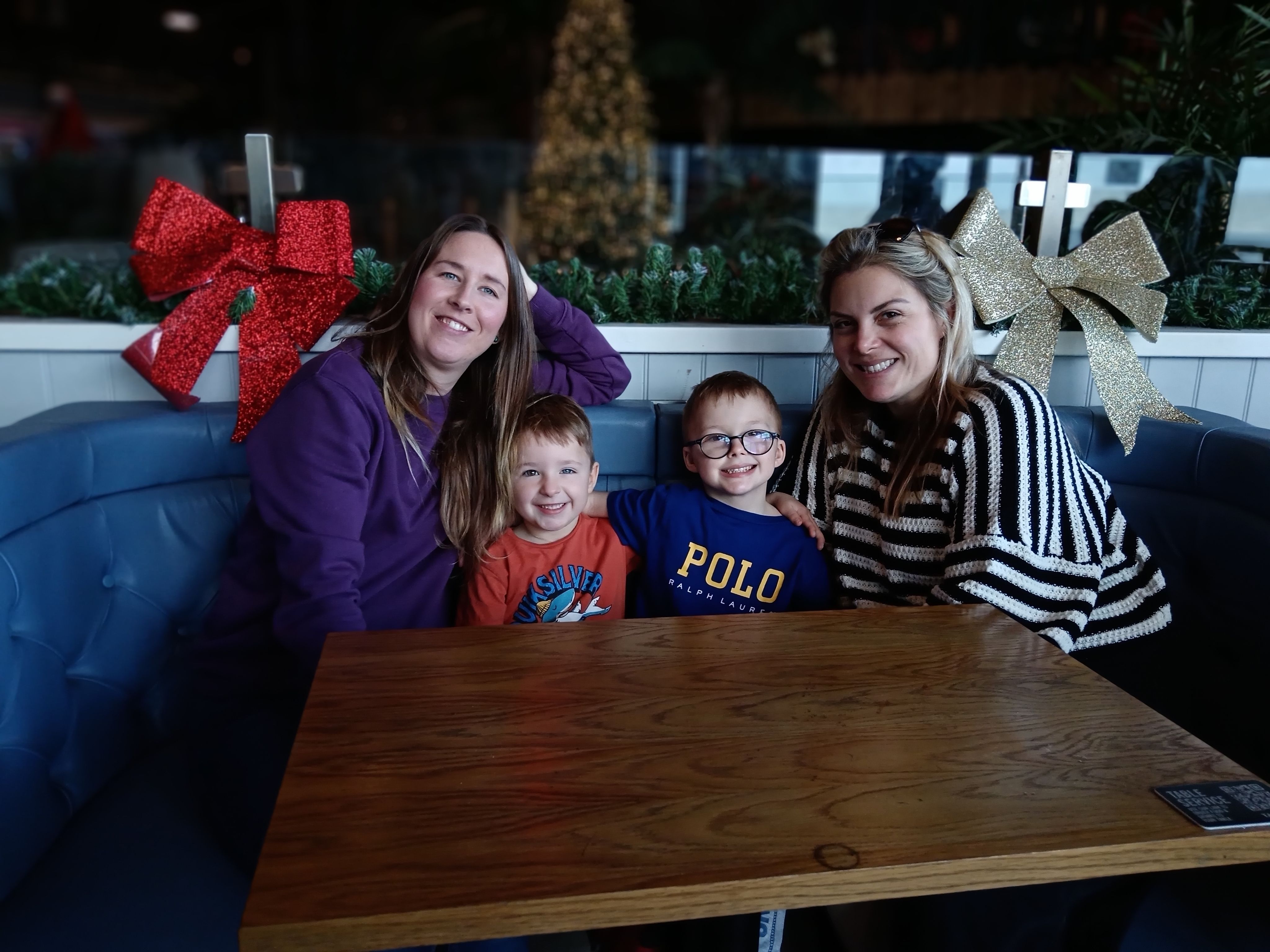Max and Parker
Getting home safely and the benefits of shared experience

Specialist care
Max was born with paralysed vocal cords and required a tracheostomy soon after he was born. At 14 months he had reconstructive surgery. Parker, who is a few months younger, was born with a narrow airway that hadn’t developed correctly. Both boys went through numerous invasive procedures. Their parents had to learn how to manage their needs at home, with specially trained nurses helping with this transition.

Max and Parker both needed specialist care
Max and Parker both needed specialist care
“The nurses gave us great reassurance and support and, because we knew them so well, we trusted their judgement. I knew that help would be just a phone call or email away."
Katherine says they were lucky, only needing one emergency phone call when Max’s tracheostomy tube came out the day they were discharged!
Sarah O'Driscoll is the Family Liaison Nurse in PICU (Paediatric Intensive Care Unit) at Addenbrooke's Hospital. She is part of a wider team working together to facilitate families going home, describing it as a privilege to see very sick children improve and parents then able to take them home.
She explains: "As a team, working in partnership with families, we encourage and support the parents straight away to be involved in their child's care while they are in hospital. Parents of a child with a tracheostomy and complex needs are supported to gain the skills and confidence required to look after their child safely at home."
"The parents know their child best and need to have control back. Through effective communication, training and education we empower parents in preparation for discharge."
Closer to home
As a ‘hospital without walls’, Cambridge Children’s Hospital will endeavour to treat children in their own communities, where appropriate. This may be through telehealth technology and working closely with local clinical services as well as the families themselves.
Mostly Katherine says she prefers face-to-face appointments, particularly if there are significant concerns about Max’s health. Being in the room with their trusted consultant also puts Max at ease.
However, Katherine says having the option of hospital or home is a good thing: “Just for a simple check up, we have had phone calls which is obviously better than an hour and a half drive. I think it depends on the level of need for the appointment."
"If technology could be used to reduce impact on families, so they could have more care at home, if they prefer, that could be a really good thing.”
There is also benefit in meeting others who share your experience. Both boys still had their tracheostomy tubes in when their mums first met for coffee in a local café. They also went to baby groups together. Sometimes people would stare, particularly when the boys’ tubes were being suctioned. Siobhan and Katherine say it would have been much harder without each other.
Katherine said: “I knew what Siobhan was going through. The memories flooded back. Learning how to take care of the tube and the child. I’d already done loads of worrying, so I was able to reassure Siobhan. We have supported each other.”
Cambridge Children’s Hospital will have indoor and outdoor spaces where families can meet, something Katherine and Siobhan believe will be beneficial. “It’ll be good to have a proper parents room, somewhere nice to meet. It’ll also be great to get outside in the fresh air when you need a minute.”

A concept design of what one of the outside spaces at Cambridge Children's Hospital could look like
A concept design of what one of the outside spaces at Cambridge Children's Hospital could look like
Siobhan says her friendship with Katherine has made hard times easier.
“When you’re in hospital, you only hear hospital terminology and that can sound really, really scary. When I met Kat, I was like – it’s going to be alright.”



Thank you Katherine and Siobhan for sharing your story

Katherine and Siobhan are both members of Cambridge Children's Network. If you'd like to get involved in the project, we would love to hear from you.





